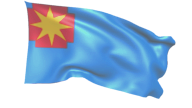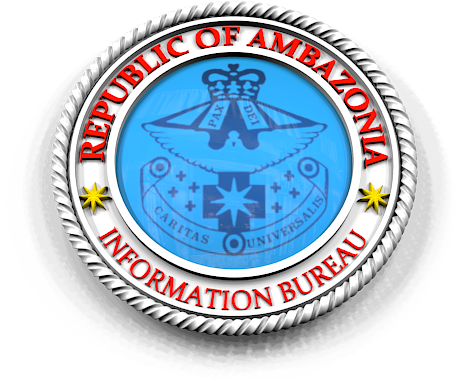In times of Crisis, as with a hung Parliament, the lack of an automatic choice of Prime Minister or an unjustifiable and unnecessary request for a dissolution of Parliament, the Head of State provides an impartial and non-political arbitrator, like an umpire called in when the players cannot agree. The Head of State would also be able to intervene if the government acted un-constitutionally by, say putting the opposition in jail, abolishing elections, or instructing the police not to prosecute members of the government for criminal offenses. The Head of State can also dissolve Parliament, and appoint a Prime Minister.
A form of Government that only came into being yesterday can quite easily be overthrown tomorrow; an institution sanctified by 1,000 years of Sovereignty is more deeply embedded in the consciousness of the nation and more closely woven into the fabric of political life. It can still be, but people are still likely to think very hard before they pick up the sword.
Governments come and go; a week is a long time in Parliament, and five years a lifetime. However, the State House is always there, and the apparatus of Head of State helps to bridge the discontinuities of party politics.
Reading state papers, meeting heads of state and ambassadors, and holding a weekly audience with the Prime Minister gives the Head of State an unequaled store of knowledge and experience. Politicians see state papers only when they are in office, but the Head of State sees them every day. The Head of State has the constitutional right to be consulted, to encourage and to warn makes this experience available to every government, as it is after all, the Head of State’s Government.
Party politics is about disagreement and confrontation. It encourages polarization – rich against poor, north against south, management against unions, Catholic against Protestant. Parliament institutionalizes division and conflict. The Head of State is about national unity and institutionalizes cooperation and consensus.
The choice of Head of State is in the hands of the Members of Parliament, and thus would appear to be political. However, the symbolic and representative meaning of the institution of the State House must have the effect of ensuring that the Head of State elected is usually a man/woman of highest stature, who had contributed to the State, and have won much favor among all sectors of the nation. The institution of the State House is a complementary institution in the structure of the regime in Ambazonia, and the Head of State is tasked with roles and powers that other governmental institutions cannot take upon themselves, both at times of stability and in times of crisis and dispute. Any Ambazonian citizen who is a resident of Ambazonia is eligible to be nominated for position of the Head of State.
Ten Members of Parliament are allowed to nominate a candidate for the position of Head of State.
The Head of State is elected by the Parliament by secret ballot, and following his election he swears allegiance before it.
The Head of State's term in office is seven years.
An elder/wise person at the head of the nation’s affairs is something everyone can understand and identify with. It makes the state seem human, personal and accessible. A parliament portrays public life as a battlefield; the Head of State portrays it as a family circle.
By honours, awards, visits, patronage and sponsorship the Head of State can recognize and reward achievement by individuals and organizations, and publicly affirm their value to the nation.
A wise/elder person is a powerful symbol for the armed services of what they are fighting for, and are not so vulnerable to the winds of political favor in supporting the forces and honoring their sacrificing.
The Head of State can set a consistent moral standard which people can look to as a guide and example.
The Head of State can also give the nation an example or, to be more precise, a range of examples of acceptable behaviour in the smaller matters of social convention and behaviour.
Through its ceremony, pageantry and ritual, the Head of State preserves the link with Ambazonian’s history and reminds people of the country’s past achievements and the antiquity of their state.
By being close to the heart of affairs, but outside of the political arena, the Head of State can focus attention on the country’s long-term dangers and opportunities as a counterweight to the inevitably short-term preoccupations of politicians in the heat of the party battle.
Uniting the Nation with the State
Most important of all is the combination of the constitutional role as Head of State and the social role as Head of the Nation within a single institution, a single person and a single office. If the State House can be the focus of the people’s loyalty, pride, patriotism and a sense of nationhood, then the people are simultaneously focusing these emotions on the state of which the Head of State is the constitutional head; they are confirming and supporting the legitimacy of the political, legal and economic system, which regulates their daily lives.
Powers of the Head of State:
The power to appoint and dismiss the Prime Minister
The power to appoint and dismiss other ministers.
The power to summon, prorogue and dissolve Parliament
The power to make war and peace
The power to command the armed forces of Ambazonia
The power to regulate the Civil Service
The power to ratify treaties
The power to issue passports
He/ She can confer Ambazonian’s highest civilian decoration, the Order of Merit—one honor in which the State House retains freedom of choice.
What the Head of State cannot do is vote. Nor can he/she express any shading of political opinion in public. The Head of State cannot sit in the House of Parliament. He/She addresses the opening session of each Parliament, but He/she cannot write his/her own speech. The Head of State cannot refuse to sign a bill of Parliament, and He/she cannot appear as a witness in court.
The Head of State of the State anchors the independence of the Head of State of the State, and bestows substantive immunity regarding anything connected to his duties and powers. This immunity extends after the Head of State's term as well. The meaning of this immunity is that the Head of State does not answer to any court regarding anything in the course of his duties or the use of his powers. The intent of the substantive immunity is to protect the status of the Head of State as the head of state, above the other branches of government. In addition to the substantive immunity, during his term in office the Head of State enjoys procedural immunity, and cannot be put on trial while his term is in effect.
Duties and powers granted to the Head of State of the State, including:
-
The signing of laws;
-
Receiving a report from the government on its meetings;
-
Credentialing the diplomatic envoys of the country and receiving the credentials of diplomatic representatives sent by foreign countries to Ambazonia; Credentialing the State's consular delegates and upholding the appointment of consular delegates sent by foreign countries to Ambazonia;
-
Signing treaties with foreign countries approved by the Parliament;
-
Carrying out the appointment of judges and other officials - which have been chosen by the selection committees set in law, who swear allegiance before the Head of State prior to their appointment - and removal of same from office.
The Head of State has the authority to pardon convicted offenders, commute their sentences and the power to shorten the limitations and expunging periods set by law.
The Head of State "Shall carry out any other duty and enjoys any other power reserved to him by law."
Many of the Head of State's powers are ceremonial powers in nature, but some are unique powers, which leave issues to the discretion of the Head of State of the State.
Another power left at the discretion of the Head of State is: The Government, to appoint the members of Parliament to form a government, following consultation with the representatives of the parties in Parliament.
The appointment of the Governor of the Bank of Ambazonia, the Head of State of the National Academy of Science, members of the council of the Elders/Chiefs, members of the assembly of the Broadcasting Authority, members of the Higher Education Council, members of the council of the Prisoner Rehabilitation Authority, etc.
The Head of State opens a new session of the Parliament.


